Piolets d'Or Announces the "Significant Ascents" of 2023
This list of 68 climbs is effectively a "long list" used to select nominees of the prestigious alpine award.
Two brothers from Cardiff, Wales create a life of purpose by being of service to others through their extreme ultra running challenges.

Like a J.R.R. Tolkien novel, the nine-year running careers of Scott and Rhys Jenkins read like epic quests composed of challenges that grant the characters new levels of personal growth.
But instead of facing Tolkien’s man-eating trolls and cave-dwelling goblins that represent man’s demons within, the Jenkins brothers conquer their inner demons by setting out on ultra challenges in the harshest places on Earth - from Iceland to Death Valley. Their motivation to push through the pain comes from their commitment to causes that have personal meaning for them. Among other charities, Scott has been a longtime ambassador for Operation Smile, an international organization that benefits people born in developing countries with cleft palates. Rhys runs for CF Warriors, a charity that improves the quality of life for children with Cystic Fibrosis. (Listen to their podcast episode here).
[buzzsprout episode='1834168' player='true']
In addition to raising money and awareness for charitable causes, Scott and Rhys are proud to represent their home country of Wales, a nation within the UK that is roughly the size of New Jersey. Scott is eight years older than Rhys, but there is no competition between them, as they, along with the help of their support team, carry each other through the inevitable low moments of each race.

Together, Scott and Rhys have survived freezing temperatures on a 250 mile run across Iceland in only five days, endured the suffocating heat on multiple crossings of Death Valley and even ran 2000 miles across the United States from Boston to Austin in 75 days. In addition to the sheer distances, these runners battle through altitude, extreme temperature swings, and bewildering sleep deprivation. Their adventurous endurance accomplishments are too numerous to list here, but some of their recent highlights include:
Scott:
Hiked up Mount Whitney (14,000 ft) and down the other side in 10 hours toting a 60 lb backpack and carried on hiking self supported for another four days on the John Muir trail summiting Forresters Pass (13,000 ft), Glens pass (12,500 ft) and Baxter’s pass (12, 500 ft) covering 80 miles over the five days at altitude.
Completed the Grand Union Canal 145 mile race in 44 hours and the Liverpool to Leeds 130 mile canal race in 33 hours 38 mins.
Rhys:
Became the first Welshman to complete the Badwater 135.
Completed the Grand Union Canal in 42 hours, the Bristol to London 145 mile race in 36 hours and the Liverpool to Leeds canal race in 33 hours 38 mins.
Ran 24 marathons in 24 days.
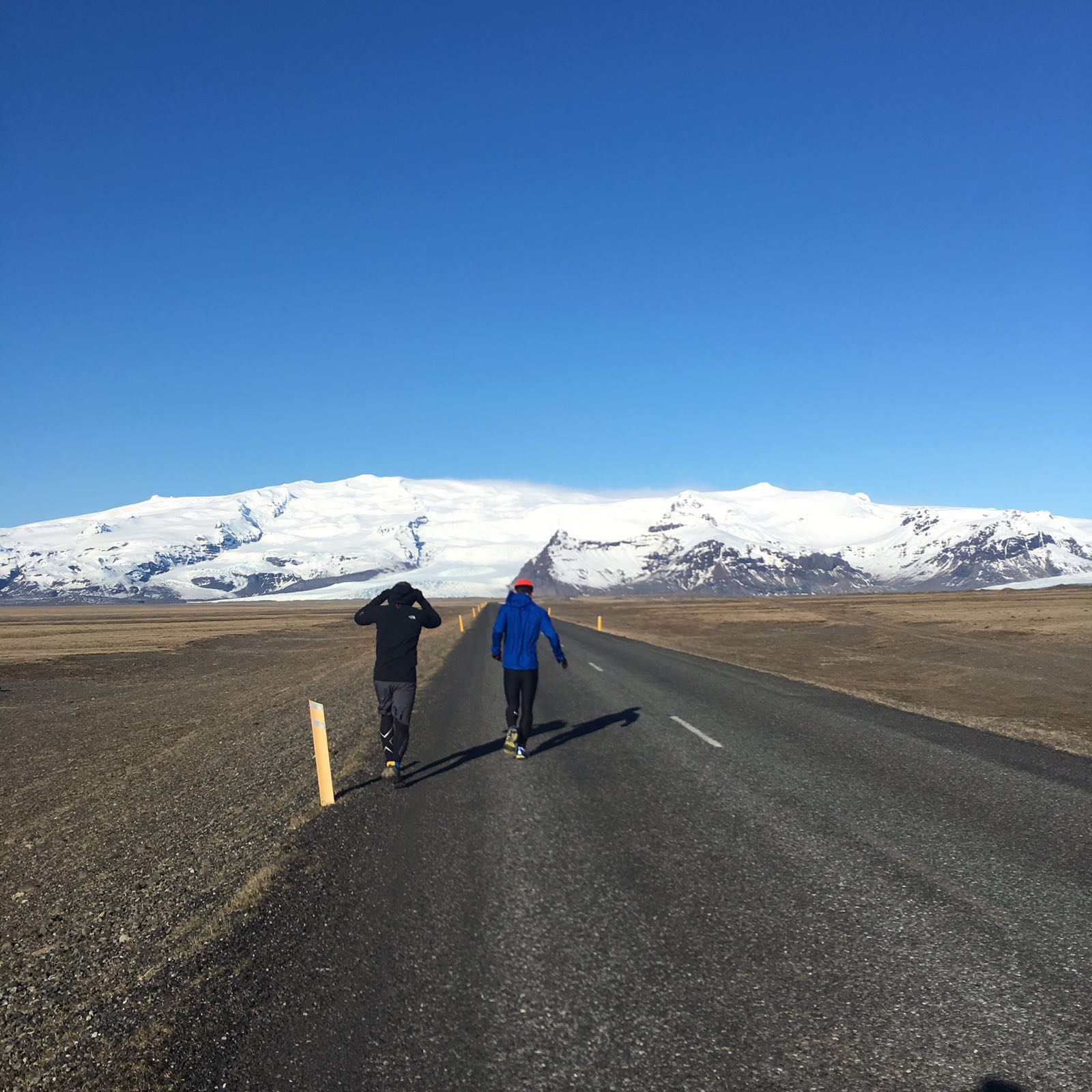
BADWATER
To the Jenkins Brothers, Badwater is the holy grail of ultra running. The grueling trail starts at 282 feet below sea level in Badwater Basin, Death Valley and ends at an elevation of 8,360 feet at Whitney Portal, the trailhead to Mount Whitney. Only 100 runners are accepted to run through the 120-degree heat each year and they must accumulate a minimum of three 100 mile races for consideration. To earn his invite to the event, Rhys ran the route four times unofficially - twice with Scott - including a double-crossing which covered 270 miles in 107 hours. This year, Rhys became the first Welshman to ever complete the 135-mile fire-breathing behemoth, and he did so in 40 hours 47 minutes.
UK CANAL RACES
Can you remember what you did last weekend? Scott and Rhys Jenkins can. They ran 44 hours straight, through day and night. Only 10 days after traversing Death Valley in the scorching heat, Rhys teamed up with his brother to run from Bristol to London, the second leg of a three-part series of canal races totaling over 400 miles. By finishing all three races this season, the brothers hope to complete the canal grand slam, or "canalslam."
The Outdoor Journal connected with Scott and Rhys just days after completing the 145 mile Bristol to London canal race in the height of their summer running schedule to discuss the holy grail of ultra running events, their motivations for pushing their bodies through suffering, and the cathartic benefits that ultra running provides in becoming a better person. (
Listen to the full discussion on this episode of The Outdoor Journal Podcast).[buzzsprout episode='1834168' player='true']
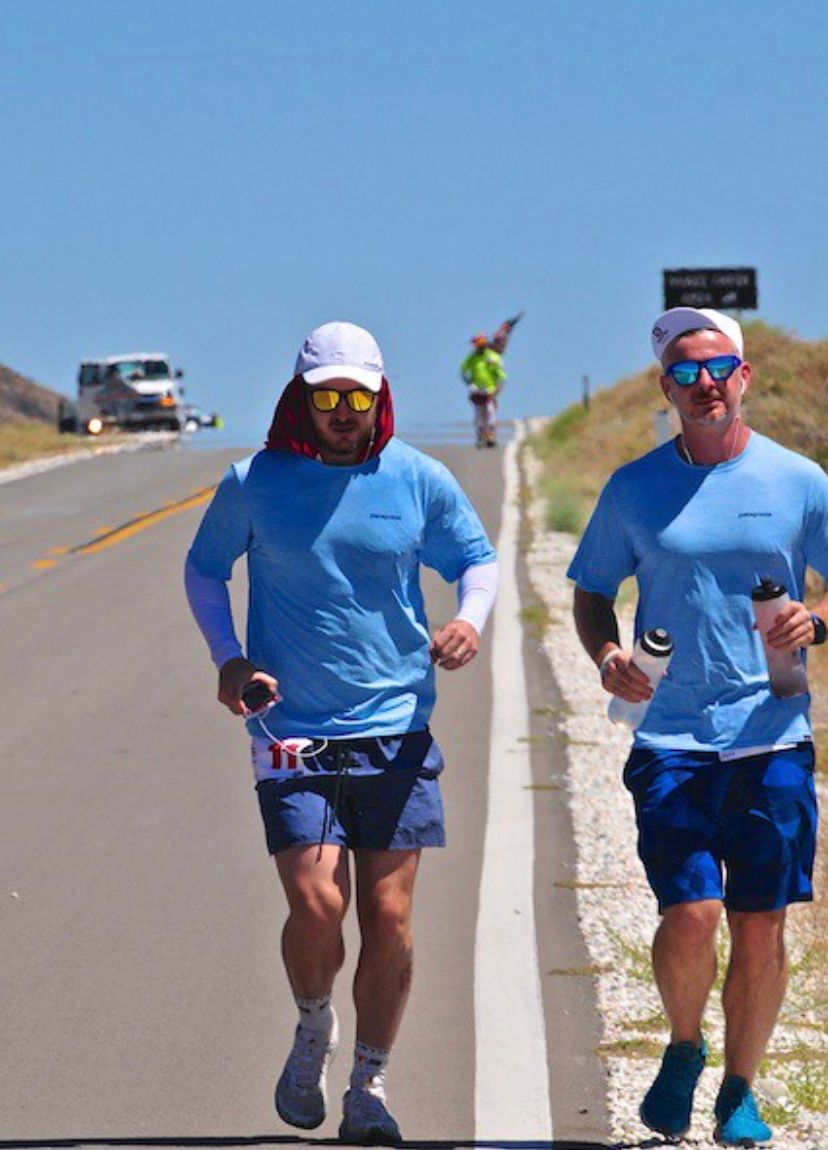
TOJ: One of the things that shocked me was that your first introduction to long-distance ultra-running was by committing to run more than 2000 miles from Boston to Austin. How did you go from having very little competition experience to committing to such a big challenge?
Rhys: It started for both of us on a half marathon in South Wales, and both of us thought we could go a little bit further. And a couple of years later I ended up doing the Las Vegas Marathon. I'm not the fastest, I'm never going to win a race, but when I got to the end of that, again, I thought I could go a little bit further. Being quite young wanting to see the world, what better way to do it than on foot, exploring the USA? The idea of running from Boston to Austin was formed in about a week and then it took about a year and a half of planning and getting sponsors and so on. That was literally throwing ourselves into the deep end. I learned a lot from that trip which has shaped me and I still carry it through today.
Scott: There’s another aspect to it as well. We had already realized we were decent at running distances, but we also wanted to do something to help others. With Boston to Austin, we recognized that there was an opportunity for us to do something that we're good at, see the world and have an adventure, but also help other people along the way. We each picked a charity that we wanted to support touring Boston to Austin. For me it was British Heart Foundation, for Rhys it was Help for Heroes, so it was double motivated in that it was about having an adventure but also about doing some good along the way as well.
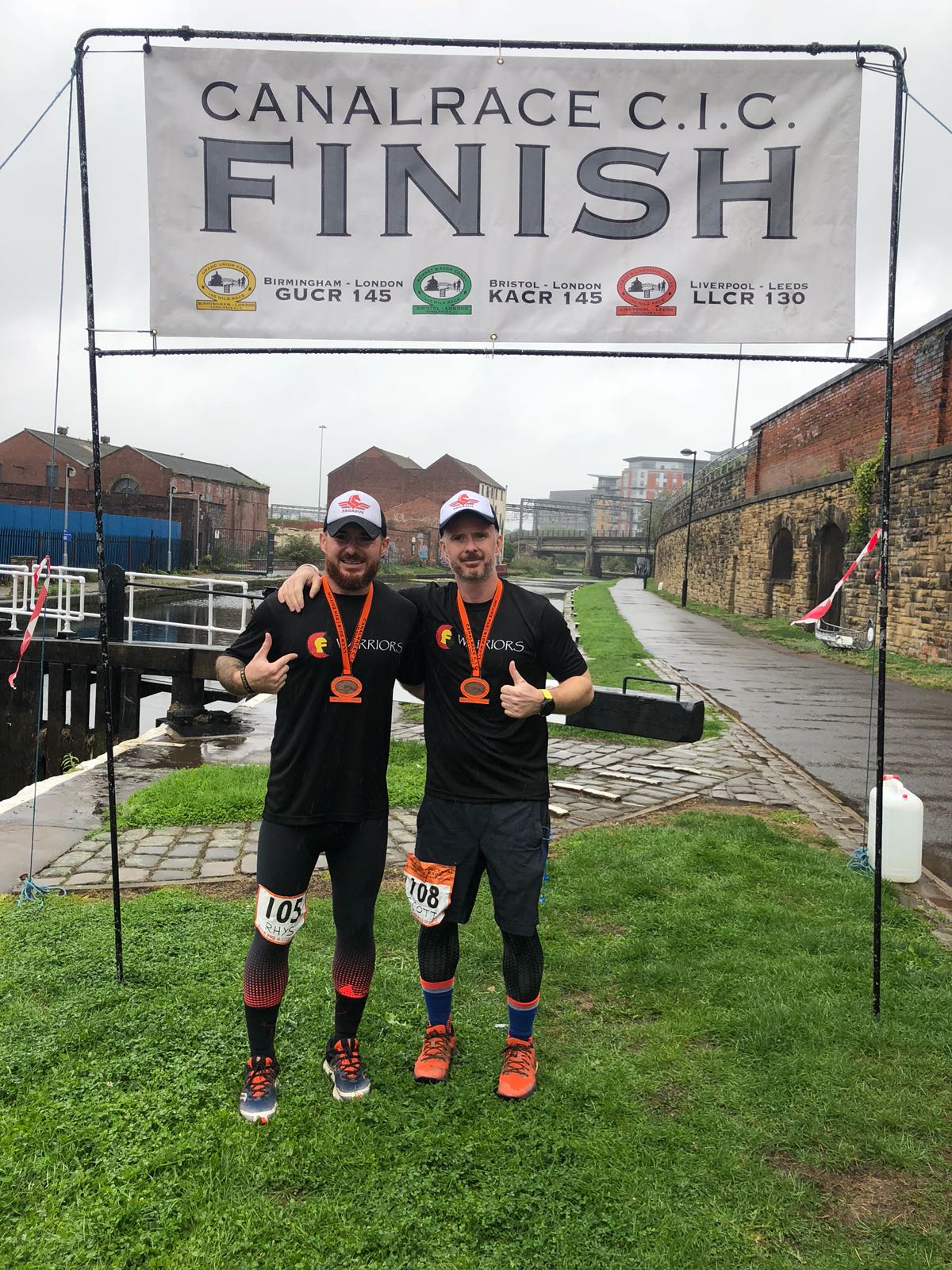
ULTRA MINDSET
TOJ: I've seen people who are very well trained collapse after finishing just one marathon and I’m struggling to comprehend how you are able to do 75 in a row.
Rhys: Mindset. If I tell myself I'm going out for a five-mile run and I get to five miles and I'm done, I'm happy. I'm feeling like I'm good to go and rest. But, if I tell myself I’m going out for a 145-mile run, it may not be as simple as that, but my expectations are that I need to get to that mile before I'm allowed to relax. You just give yourself little things to hang on to, every mile, every checkpoint. You don't let your body get excited. For us now a marathon is an incredible achievement, it is a milestone for the distance that it is, but for what we’re doing, it just has to be another number.
Scott: I completely agree with what Rhys said. It is all about mindset. These ultra-marathons are almost 75% mindset, 25% physical because you can train yourself to the highest level in the world and you're going to have bad days when things go wrong. But what I've found is that your mind will quit way before your body ever will. These ultra-marathons are like a series of peaks and troughs. We just did Bristol to London on the weekend, which is a 145-mile ultra-marathon down one of the canal paths here in the UK. We experienced highs and lows, but we had the foresight to be able to recognize when we were in a low spot and get through it by eating some food or thinking about our reasons for doing the run.
Rhys: I sort of had a weird experience recently whereby I finished Badwater over in the USA. In Death Valley, California. Finishing that race has been a lifetime dream of mine. But then to know that 10 days later we’ve got a 145-mile race was a weird sensation to know my body has to go again and I've never run such large distances that close together. It was quite hellacious in places. It was painful throughout. But whilst you’re falling apart, the other guys pick you up, and when they start falling apart you pick them up. We're blessed in a way because we've got each other. We've got friends and family who come with us on the trip and they take care of you when you're in a bad place and then you return the favor when you're in a good place. It is a team sport. For our crew, sitting in a car for 48 hours, it's got to be unbearable. Your body would tell you to go to sleep, but they can't. They have to be on their toes. They have to be looking after these two “prima donnas” who are waltzing their way along the canal requesting McDonald's at 3 am in the morning when there isn’t one in sight. it's very inspirational to see the amount of support that we have from our friends and family.
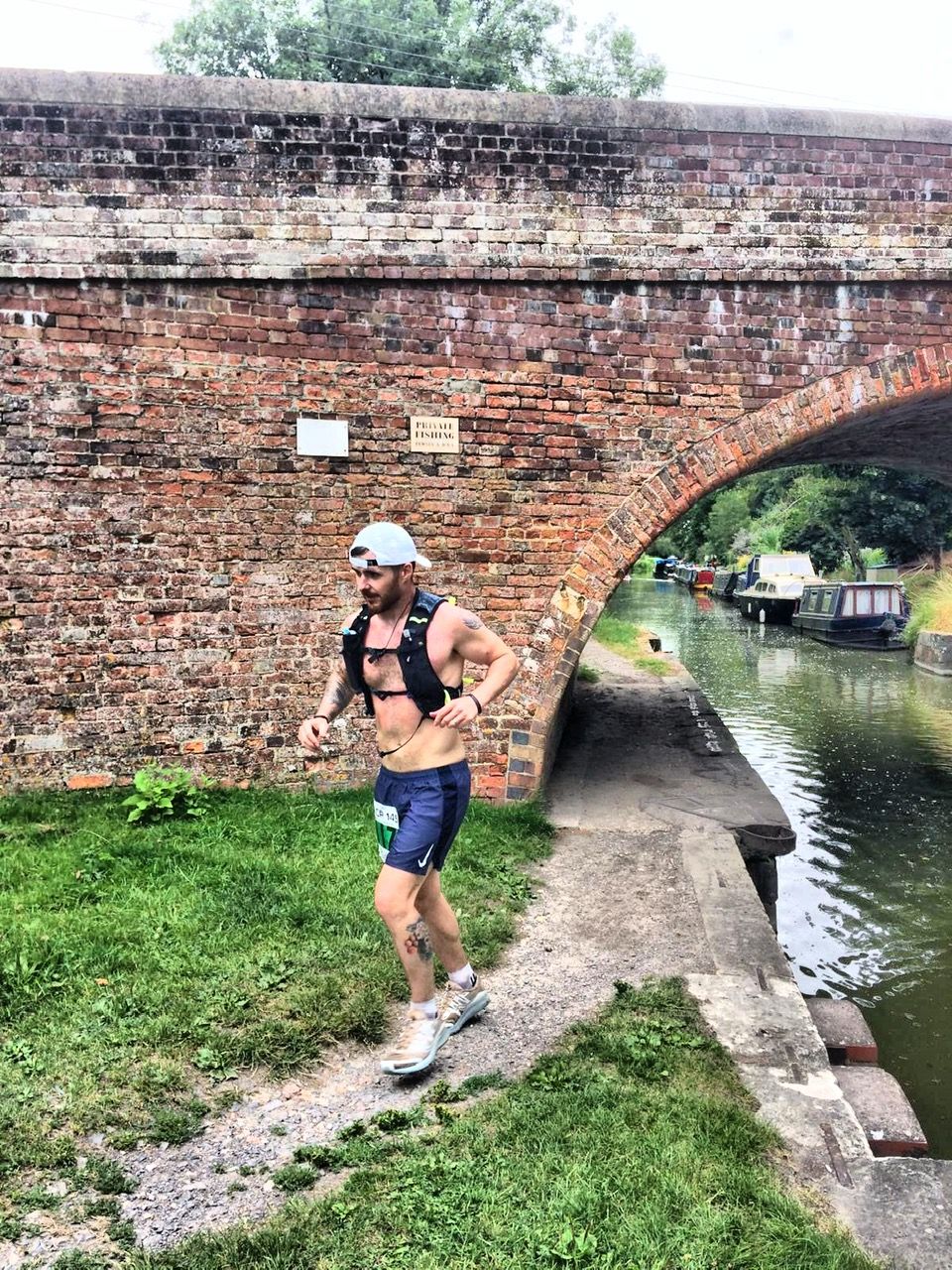
LONDON TO BRISTOL CANAL RACE
TOJ: One of the most interesting things I learned about the canal race that you just ran was that, counterintuitively, it’s lack of elevation changes compared to Badwater is actually what makes it difficult because you're constantly working the same muscle groups and you can't alternate them.
Scott: That's really interesting that you picked up on that. They're different races of course, Badwater is the holy grail of ultra-running. It's unique in its difficulty because of the heat and the huge climbs that makes it so tough. I think the canal races are really quite unique. They're really cool in that many of them are industrial canals that span the length between two major cities in the UK. The most elevation you get are these are small little bridges occasionally and you're kind of willing them to come because your gait cycle is constantly accustomed to run on the flat. I do find it painful because you don't get any respite for your muscles to work in a different way.
“Badwater has been my dream for 10 years.” - Rhys
Rhys: Badwater has been my dream for 10 years. It is the pinnacle of ultra-running for me. It is the holy grail. It's the ultimate challenge of the human spirit. It’s how far are you willing to push yourself in one of the most hostile places on earth. I've done the route many times for charity, but I've never done the real race. The first time I ever went out to do it, I didn't really know much about it. I didn't realize how many hills that were. The climbing is outrageous over there. Going downhill, you can't really control your body. You just have to go with it. Yes, you're using different muscle groups but it's very painful going downhill. It's probably just as painful as going uphill, albeit a little bit faster.
TOJ: Rhys, it seems like you spent years building up a campaign and an application for Badwater. Can you explain to non-ultra runners what it felt like when you found out that you were accepted?
Rhys: It was very emotional. Genuinely, I’m not afraid to admit that I cried as soon as it happened. Only 100 runners are chosen each year. I'd spent the best part of two weeks plotting with my wife and thinking about how I can fill this application out and do myself justice so I can possibly get into the race. My approach was to just be honest and genuine about myself as an individual. That's not from a running perspective. That's just from a whole life perspective. Okay. More you do in your day to day life. When the race director reeled off my name it was just unbelievable. I’m getting quite emotional now actually talking about it.
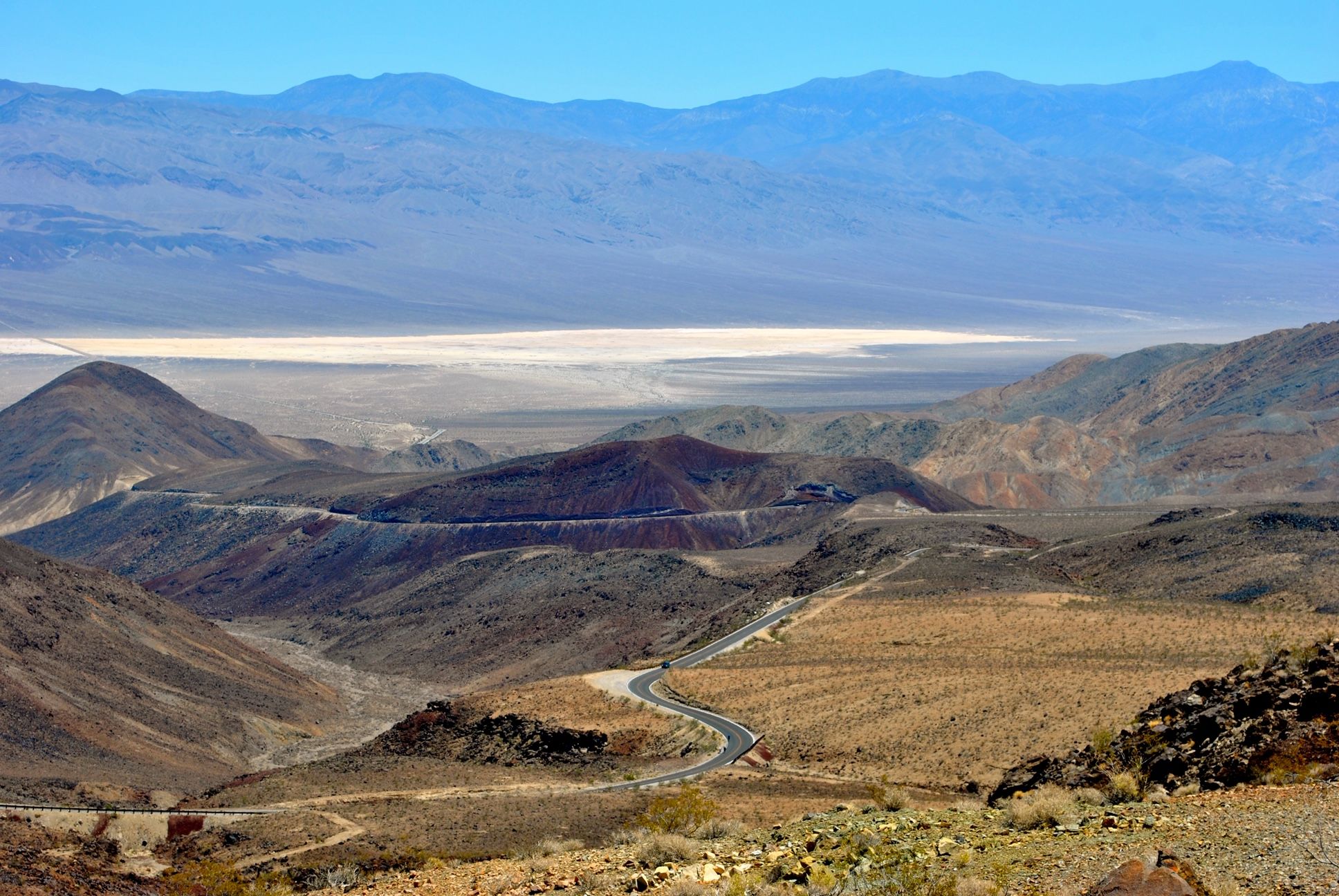
RACE EXPECTATIONS
TOJ: For the races that you've done this summer, how did you go about setting your expectations for your time and your placement?
“I'm never going to be the fastest, but I will do my damnedest to get there.” - Rhys
Rhys: Badwater was always about completing it. Like I said, it's always been that life dream, that one thing I've always had my eye on. I just wanted to experience getting to that finish line. I wanted to experience the people, the family, the atmosphere, what actually goes on throughout the race - the environment, the mountains, etc. And certainly in terms of placement, I'm never going to be the fastest, but I will do my damnedest to get there. And then recently with the KACR from Bristol to London 145 miler being so soon after Badwater, it was a case of completing it. The Race Director came up to me at the start of the race and asked whether I had actually lost my mind.
Scott: The first Grand Union race back in May was the second time that I've run the Grand Union canal and I wanted to do it quicker than last year. I was really pleased to shave six hours off my time in 2018, which was a massive success and a testimony to Lawrence our coach as well. For this race, I think it was really important for me to finish the race and I didn't really care how we got it done because I knew that it would make me eligible to apply to run Badwater next summer. We worked as a team and we got the job done and that was the most important thing to me about that race. Moving forward, Liverpool Leeds is the third of the canal races. I don't really have a time goal, but it would be nice to do it quicker than it did last year in 33 hours and 48 minutes. I think that would be great because that would mean that we will likely finish in the top 10, which would be awesome. Also, it's a stepping stone for me as it’s my last big run before I go to run the Mohab 240. I’m focusing all my efforts on training for that race. It’s a behemoth of a race. It's going to be difficult. It's in a super cool location. I really want to try and aim towards the top 10 in that race. If I could go under 75 hours for the 240, that would be my kind of A-goal at the moment.

COMPETITIVE SPIRIT
TOJ: Do you have individual rivalries to the point where, as you're racing, you look over your shoulder and say, “We can't let them pass us, we have to go faster?”
Rhys: We sort of leapfrog back and forth between other racers and you just want to see other people get to the finish line. You want to get there as quick as possible because you just want it done. Throughout the race, you go back and forth with people. You build friendships with them. You don't really build rivalries. I'll never be in a position where I'm going for first, second or third. I'm doing it for charity.
“If we see a head-torch, we’re sprinting.” - Scott
Scott: For the canal races, the only point where I get competitive is probably the last 13 miles or so. Those races for me don’t really start until the last segment. I'm not competitive with Rhys because I want us both to do well and we always run together and I really enjoy it and I think it's quite a nice gift for us to be able to enjoy running together. But, I don't want anyone overtaking us in the last half-marathon (laughs). You've worked so hard to that point for over 30 hours and you don’t want to give up the position at that point in the race. We just did it the Bristol to London race on the weekend where we were in 20th place and we decided we're not letting anyone go past us now in these last couple of miles. If we see a head-torch, we’re sprinting.
TOJ: One of the people I look up to the most is Rich Roll and one of the themes of his podcast is to be of service and I feel like you have created a life of purpose by being of service to others through running. Looking back, is there someone in your life or maybe in your youth growing up that inspired you to follow this lifestyle?
Scott: That's a really kind thing to say and it's certainly something that I feel a responsibility for. And I'm sure Rhys does as well. We're both ambassadors for charities. I'm an ambassador for Operation Smile. Rhys is an ambassador CF Warriors, a charity run by his close friend for people with cystic fibrosis. I have this vision in my head of when we grow old in life and are coming near to the end of our lives, when I think of that point in time and I think about what I want to reflect on during my life, I strongly believe that the things we will remember wouldn't be when we saw a Liverpool win the Champions League or when we sat on the sofa and watched Netflix, it'll be the time where we made a difference to others and tried to improve the lives of others. I feel like there's a responsibility in all of this to have fun with our lives and have an adventure, but ultimately do something to help others along the way. When you talk about inspirational characters, I think it was just the friends and family that I grew up with. And being from Wales, you do feel a great pride in coming from a small country and wanting to represent the community and people you live with in a positive light. And for me, running is giving me the opportunity to be able to do exactly that, which is, represent my friends and family in a positive way and make a difference to others.
Rhys: I 'm never going to be the richest man in the world and I’m never going to be the smartest, but I'm actually quite good at just moving forward and we figured out that people will support a charity if you're willing to push your body and your limits. I’m an ambassador for CF Warriors and the people behind that give me the reason to hold on for a second longer. We’ve raised quite a lot of money over the years and it’s simply because of putting one foot in front of the other.
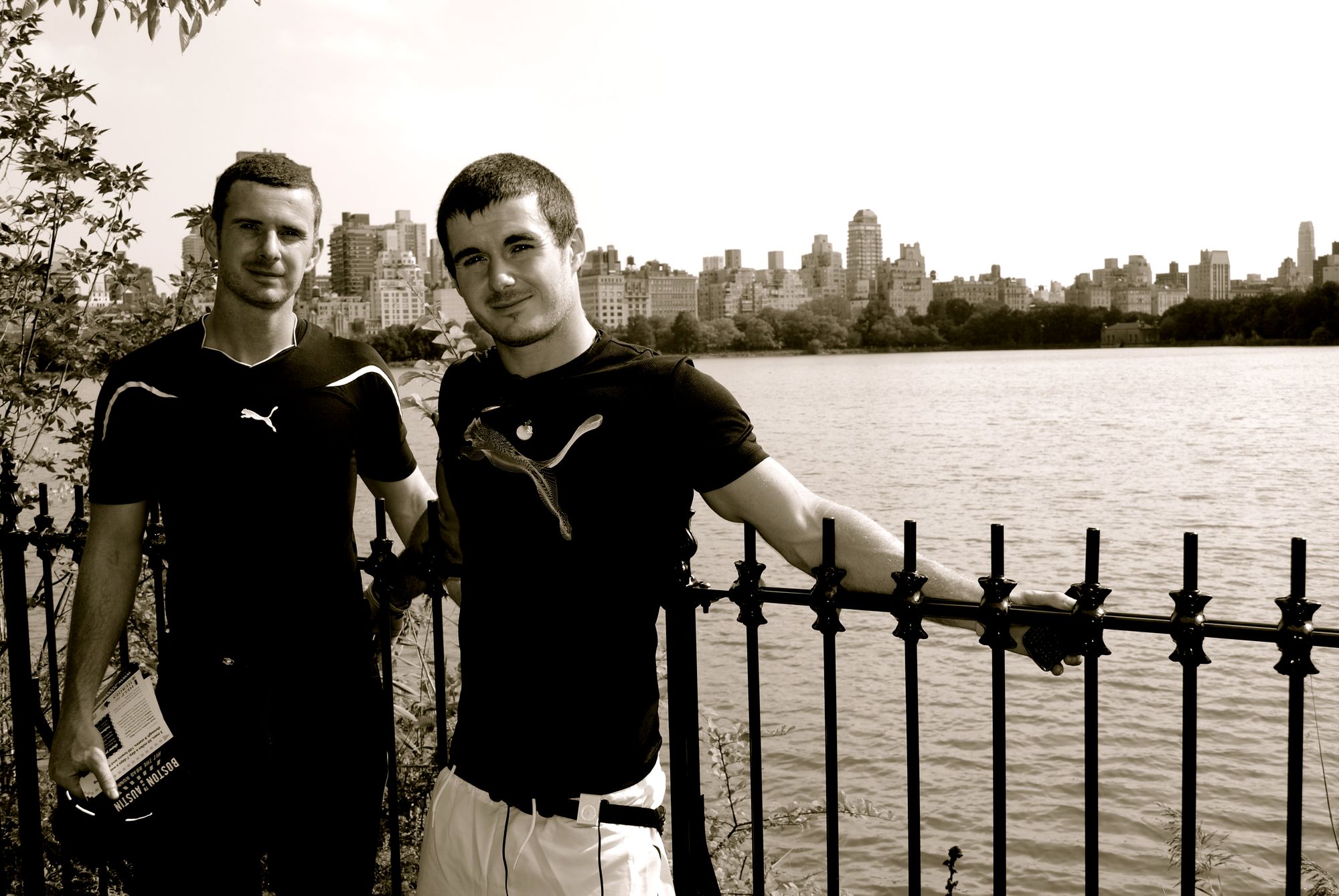
REVEALING YOUR BEST AND YOUR WORST
TOJ: Do you feel that doing an ultra run tears down the ego and exposes a person's true self or soul?
“You always end up a better person at the end of the race.” - Rhys
Rhys: It can show many faces. I think I've seen some of Scott's best faces. I've seen some of his worst. You may go to a dark place, you may shout at somebody, you may throw something on the floor and stamp on it. I've seen some of my worst, I've seen some of my best, but you always end up a better person at the end of the race. I don't think I’ve ever finished the race and gone, “Why the hell did I do that?” I've always finished it and I think in some way I've improved myself from putting myself through that.
Scott: I think it breaks people down. I think it's definitely made me a better human being. It's all sort of given me a stronger understanding of myself and what I'm capable of. I think that ultra running is almost like a microcosm of life in that you face a series of problems and challenges and it's how you overcome those that get you to your goal, and that's a lot like life, right? You need to learn from failures and you need to learn from the successes and keep a level head and keep moving forward. And what grasped me when we did Boston to Austin was that when you do these kinds of long runs, you almost retract to the bottom level on the hierarchy of needs. You don’t care about the superficial bullshit that we have every day. All you really cared about was where's my next meal coming from? Am I going to be safe? In real basic survival mode, you don't take things for granted anymore, you become a lot more of a calm and level headed person.
TOLL ON THE BODY
TOJ: With 90 to 100 miles per week of training on top of the races themselves, are you worried about the toll that you're putting on your joints and whether you're going to be driving rascal scooters when you're eighty years old?
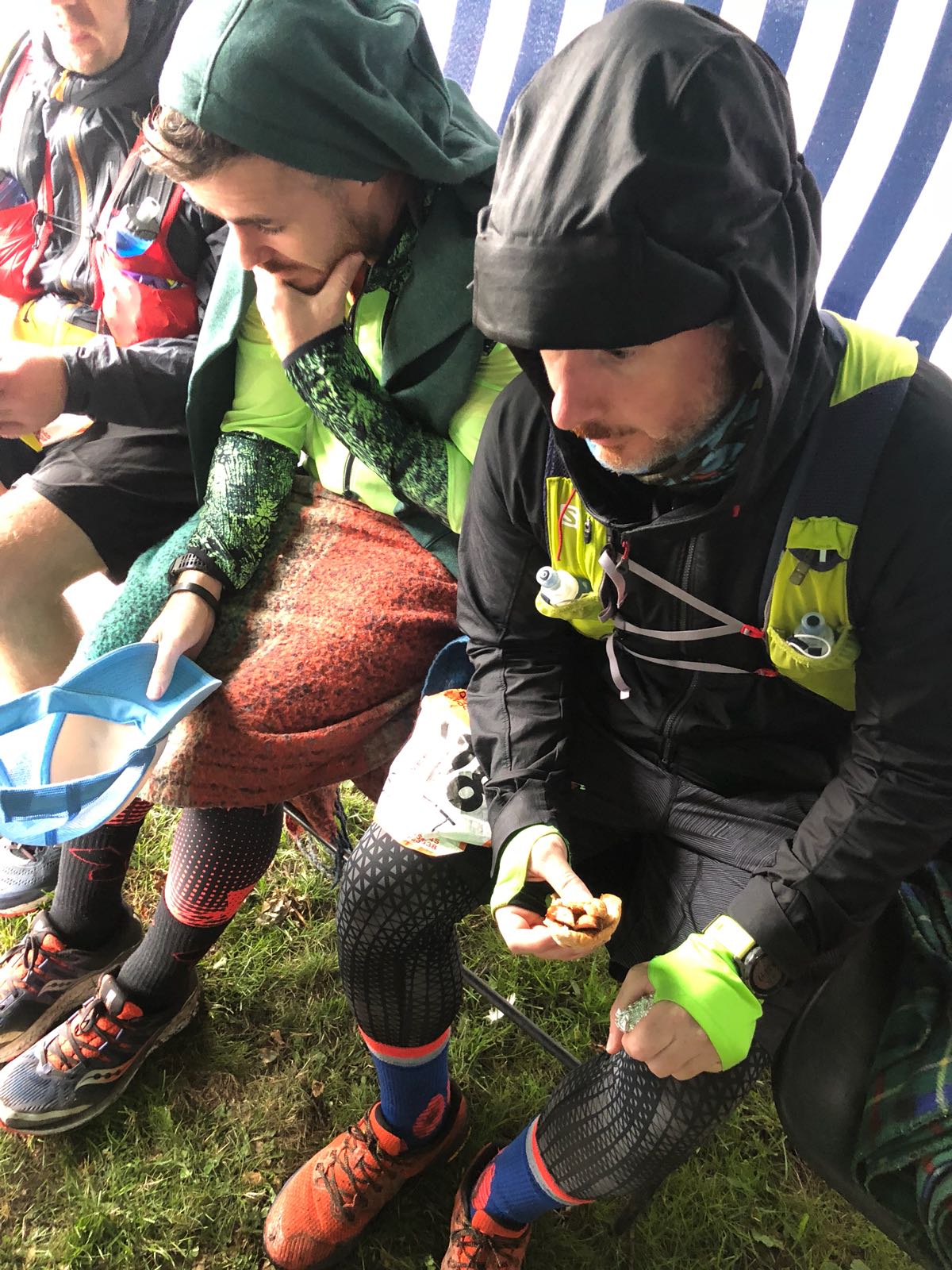
Scott: I work for Johnson & Johnson as an orthopedic product manager. It just so happens the irony of it is knee replacement. And so I come into contact with a lot of surgeons who eye me the same way that I look at a steak in terms of looking at my knees once I tell them that I do ultra running and cover these crazy distances. Through good fortune, I’ve never experienced any pain with my knees and I actually think that humans were born to the active. It's in our DNA to be active. We weren't born to be sat behind desks and driving cars around. And I actually would argue that a sedentary lifestyle coupled with obesity is much more harmful to the human body than running marathons is, as our ancestors did and as our bodies were designed to do.
TOJ: If I told you that I was going to run my first race this weekend and it was going to be the first time that I was going to run through the entire night, what kind of tips would you give for me and what should I expect?
“I would say prepare for it to suck. Massively.” - Rhys
Rhys: I would say prepare for it to suck. Massively, but always remember there's a light at the end of the tunnel. When you get through that nighttime and that dawn pops up over the horizon, it makes you a different person. I've never heard anyone say anything different. It just breathes new life into you. If you could just hang on through that nighttime, the next day is the reward when that sun pops up.
Scott: My tips would be you need to manage the transition from the daytime temperature to the evening temperature accordingly in terms of your attire. I would also recommend having some caffeine on hand when it gets to the wee hours of the morning. I would prearrange somebody to make sure you’ve got some nice foods in the middle of the night, something that's going to boost you mentally as well as give you a bit of energy physically. I love pizza when I’m running. It's one of those feel-good foods, Also make sure you've got good torch too.
INTERNAL FEEDBACK
TOJ: How much has your running technique changed since you began, now that you've had 10 years experience and you’ve been working with a coach?
Rhys: Over the last 12 months, I started looking into VO2 Max testing to figure out my training zones, which means when you go into places like Death Valley where the heat automatically raises your heart rate, you can make sure that you’re within the threshold that you need to keep going. Monitoring the heart rate builds the basis of our training and our approach during our races. Once you hit a certain level, for me it's around 150 BPM, If I peak over that, I stop, I slow down, I walk until my heart rate decreases and I get it back under control because knowing that allows me to know how much hydration I need to take on and how many calories I need to keep going. I started to notice that my cadence improved massively, and therefore my technique has improved. Coming off this past weekend, it’s very difficult to posture for 43 hours, but one thing you can definitely do is keep your heart rate in that correct range.
Scott: When I cast my mind back to Boston to Austin, we just kind of winged it. We didn't know where we were going. We didn't know where we were going to stay. We just wanted to get through a marathon, we didn't even stretch. It was the vigor of youth. We saw a great opportunity and thought, “What's to stop us?” And we found a way to get through it. But the great thing with our coach Lawrence is he's given us so much more structure around our training that has definitely made me a better runner.

FUTURE OF THE SPORT
TOJ: Ultra running has definitely been growing over the past nine years that you guys have been involved in it and there are a lot more races popping up all over the world. But is there something that is missing in the sport or is there an element that you'd like to see it evolve into in the future?
Rhys: I think it's perfect. I think it's a beautiful sport and I love the minimalist approach where it's just simple. You go out there, you're told to run from A to B or you're told to run for a certain amount of time. You just go out and do it. Because this person dreamt this challenge up and you want to do it all for a tee shirt or the metal and just the kudos for telling your friends. At the moment I think it's in a really great position and it's going from strength to strength and there will be some new amazing ideas out there for sure.
“I would love to see a hundred-mile race added to the Olympics.” - Scott
Scott: I agree. I think it's a great sport and it's something that everyone can embrace if they want to take on the adventure and have the challenge of running a hundred miles. It's just an amazing experience. I wouldn't like to see ultra running become over-commercialized. The one thing that may slightly contradict that which I would like to see, and it's based on the heritage of the Olympics, is I would love to see a hundred-mile trail race or a hundred-mile 24-hour track race added to the Olympics. I don't know how they’d film it, but if you think back to the spirit of the Olympics, it was all about running in ancient Greece and what truer way to express it than a hundred-mile foot race at the Olympics.
To keep up with the Jenkins brothers, follow them on social media:
Facebook: @thejenkobros
Scott's Instagram:@scottjjenkins
Rhys's Instagram: @rjenko11
Rhys's Blog
Subscribe to The Outdoor Journal Podcast for more stories like this.
Listen on Apple PodcastsListen on SpotifyListen on Google PodcastsFeature Image: 2015: Coming out of Badwater basin at the start of running across Death Valley for Operation Smile and Save the Children.
2nd best newsletter in the universe